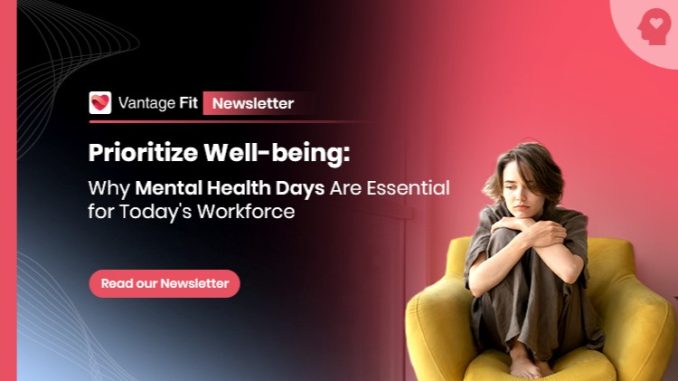
The concept of taking a day off work has traditionally been tied to physical illness—staying home with a fever, recovering from a cold, or managing a health condition that clearly prevents you from performing your duties. What has often been overlooked is that mental and emotional strain can be just as debilitating, even if it is less visible. Stress, anxiety, and burnout can erode concentration, creativity, and resilience in ways that no amount of pushing through can resolve. This is why mental health days are not a luxury but an essential part of modern professional life. They provide the space to recharge, reset, and return to responsibilities with clarity and strength, ultimately serving both the individual and the organization.
Mental health days matter because the brain is not immune to fatigue. Just as muscles tire after overuse, cognitive and emotional systems wear down under constant pressure. Long hours, high expectations, and the inability to fully disconnect outside of work can lead to chronic stress, which gradually reduces productivity and increases mistakes. Many professionals mistake this state for lack of discipline or effort, but in reality, it is the body’s way of signaling that recovery is overdue. A mental health day offers a chance to step back before that strain evolves into more serious issues, much like routine maintenance prevents small problems from becoming costly breakdowns.
Beyond prevention, these days create opportunities for reflection and recalibration. In the thick of deadlines and responsibilities, it is easy to lose sight of the bigger picture. A day dedicated to mental health provides breathing room to evaluate what is working and what isn’t—whether that means adjusting routines, setting new boundaries, or simply noticing the impact of stress on daily habits. This kind of pause strengthens self-awareness, which is critical not just for personal health but for effective leadership and decision-making. A rested mind is more capable of strategic thinking, problem-solving, and empathetic communication, all of which are indispensable in business.
Taking time off for mental health also reduces the stigma that often surrounds the topic. For years, conversations about well-being in the workplace were limited to physical conditions, with stress and burnout dismissed as inevitable. When individuals take mental health days and communicate their importance, they help normalize the idea that psychological well-being is as valid and necessary as physical health. This cultural shift has profound ripple effects. Teams become more supportive, organizations adopt more holistic wellness policies, and employees feel safer addressing issues before they escalate. In this sense, a single mental health day contributes to a healthier workplace culture that benefits everyone.
On a practical level, the benefits of these days are evident in performance. Professionals who return from a mental health day often report sharper focus, improved mood, and renewed energy. This is not surprising, as the nervous system functions more effectively when given time to rest and reset. Chronic stress floods the body with cortisol and adrenaline, hormones that prepare us for short-term challenges but are harmful when sustained. By interrupting this cycle with intentional recovery, a mental health day allows the system to recalibrate. The result is greater resilience, not just for one day but for the weeks ahead.
For leaders and organizations, encouraging mental health days is not simply an act of compassion but a sound business decision. Employees who feel supported in caring for their mental well-being are more engaged, loyal, and productive. They are less likely to experience burnout, which is a leading cause of turnover and lost productivity. Companies that integrate mental health days into their culture send a clear message: people are valued not just for their output but for their holistic well-being. This kind of environment fosters creativity, collaboration, and long-term commitment, which are the cornerstones of sustainable success.
Importantly, mental health days do not need to look the same for everyone. For some, they may involve quiet rest, meditation, or spending time in nature. For others, they may be about reconnecting with hobbies, catching up on sleep, or having meaningful conversations with loved ones. The purpose is not to achieve a specific outcome but to allow the mind and body to restore balance in whatever way feels most supportive. Just as businesses require different recovery strategies depending on the challenge at hand, individuals need the freedom to define what restoration looks like for them.
Ultimately, mental health days are essential because they acknowledge that well-being is not separate from performance—it is the foundation of it. Taking time to rest the mind, manage stress, and reconnect with personal needs is not a sign of weakness but of responsibility. It demonstrates foresight, balance, and an understanding that sustainable success requires more than sheer effort. For professionals navigating demanding careers, these days are not indulgences to be justified but investments in resilience, clarity, and long-term productivity. By normalizing mental health days and treating them with the same importance as physical sick days, we create a healthier, more effective way of working—one that respects both human capacity and human limits.